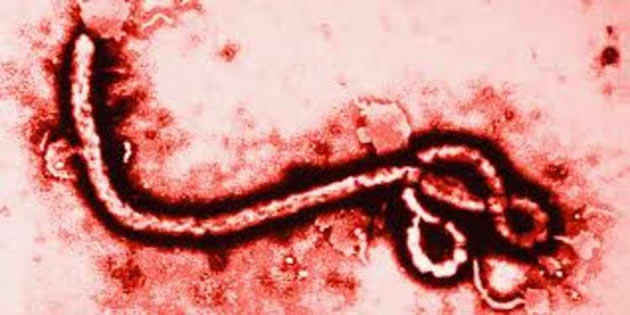Mali, New York City record first Ebola cases

GENEVA/NEW YORK. – Health authorities in Mali are monitoring at least 43 people who had contact with a toddler declared the country’s first Ebola case, the World Health Organisation said yesterday.
“As soon as the case was confirmed, local authorities began tracing everyone who had contact with the little girl and her grandmother,” WHO spokesperson Fadela Chaib told reporters.
“Around 43 contacts are being monitored. Ten are health workers, including those who dealt with the girl at a paediatric clinic,” she added.
Mali’s health ministry announced on Thursday that the two-year-old girl had tested positive for Ebola. It said the girl and her grandmother had visited Kissidougou, a town in the southern part of Guinea where the outbreak began in December 2013.
Guinea, Liberia and Sierra Leone have borne the brunt of the deadly virus, which has claimed almost 4 900 lives.
The girl was diagnosed after arriving at a hospital in the western town of Kayes on Wednesday, having fallen ill on Monday.
Chaib said that besides rushing to trace all contacts, Malian health authorities had thoroughly disinfected the paediatric clinic.
Chaib said WHO had deployed a team of experts to Mali last Sunday to assess the country’s ability to detect and deal with suspected Ebola cases. A separate team was also deployed to Cote d’Ivore, she added.
Earlier this month, WHO announced it was ramping up Ebola protection efforts in a host of African nations, amid growing fears that the disease could spread like wildfire.
Most focus is on Mali, Cote d’Ivoire, Guinea Bissau and Senegal, which border Ebola-ravaged Guinea, Sierra Leone and Liberia.
Eleven other nations – Benin, Cameroon, the Central African Republic, the Democratic Republic of Congo, Gambia, Ghana, Mauritania, Nigeria, South Sudan and Togo — have been singled out for special assistance based on their road and trade ties to the affected region, and the poor state of their health services.
Senegal has seen one non-fatal Ebola case, while there have been 11 in Nigeria, with five deaths.
Both countries have won praise for moving swiftly to stop a wider spread, and have been declared Ebola-free after the benchmark 42 days passed with no new cases.
But in international alarm has been stoked by cases beyond Africa, including the United States and Spain. Meanwhile, Cote d’Ivoire currently free of the Ebola epidemic ravaging its neighbours, has launched a hunt for a Guinean health worker who may have fled his home country after possibly catching the disease.
The man apparently took fright after finding out that someone who came to his clinic for treatment had died, possibly of Ebola, a senior official at Cote d’Ivoire ’s National Public Health Institute told AFP.
“For the moment (this person) is not contagious,” Daouda Coulibaly said, adding that the health authorities were not alarmed and “there is no panic”.
“But it would be good if he got into contact with the health services,” he said.
The unnamed health worker comes from an area in Guinea gripped by Ebola, which first broke out in the impoverished west African nation earlier this year and has now killed almost 4 900 people mostly in Guinea, Liberia and Sierra Leone.
In the United States, officials tried to tamp down New Yorkers’ fears yesterday after a doctor was diagnosed with Ebola in a city where millions of people squeeze into crowded subways, buses and elevators every day.
“We want to state at the outset that New Yorkers have no reason to be alarmed” by the doctor’s diagnosis on Thursday, said Mayor Bill de Blasio, even as officials described Dr Craig Spencer riding the subway, taking a cab and bowling since returning to New York from Guinea a week ago.
“New Yorkers who have not been exposed are not at all at risk.”
Health officials have repeatedly given assurances that the disease is spread only by direct contact with bodily fluids such as saliva, blood, vomit and faeces, and that the dried virus survives on surfaces for only a matter of hours.
But some in the nation’s most populous city, with more than eight million people, were not taking any chances.
The governor and health officials said Spencer, a member of Doctors Without Borders, sought treatment with diarrhoea and a high degree fever. Spencer is from Michigan and attended Wayne State University School of Medicine and Columbia’s University Mailman School of Public Health.
According to his Facebook page, he left for West Africa via Brussels last month.
“Off to Guinea with Doctors Without Borders,” he wrote. “Please support organisations that are sending support or personnel to West Africa, and help combat one of the worst public health and humanitarian disasters in recent history.”- AFP/AP.









Comments